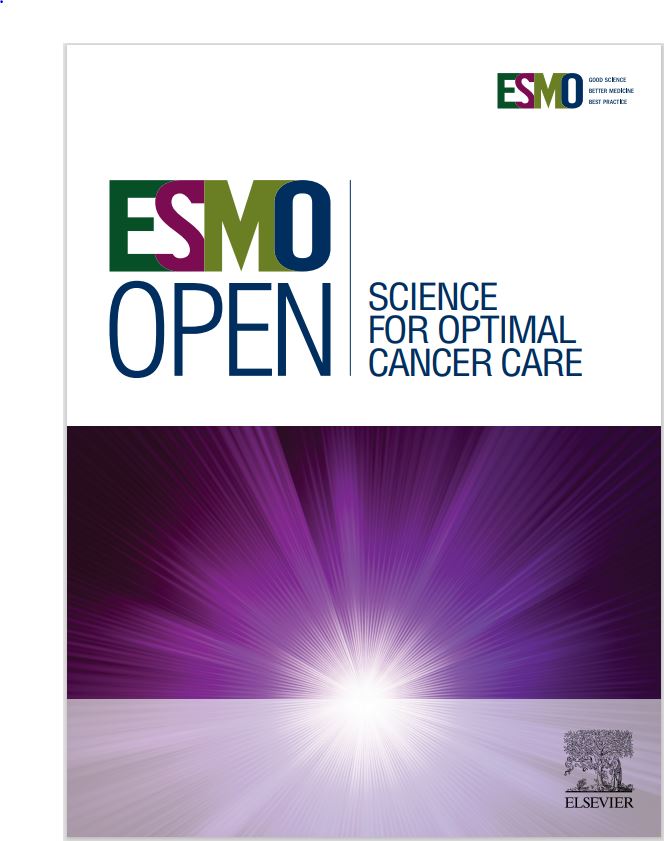Androgen receptor pathway inhibitors and drug–drug interactions in prostate cancer
IF 7.1
2区 医学
Q1 ONCOLOGY
引用次数: 0
Abstract
Prostate cancer represents a major global health challenge, necessitating efficacious therapeutic strategies. Androgen receptor pathway inhibitors (ARPIs) have become central to prostate cancer treatment, demonstrating significant effectiveness in both metastatic and non-metastatic contexts. Abiraterone acetate, by inhibiting androgen synthesis, deprives cancer cells androgens necessary for growth, while second-generation androgen receptor (AR) antagonists disrupt AR signaling by blocking AR binding, thereby impeding tumor progression. Given the predominance of prostate cancer in the elderly, who often present with multiple comorbidities requiring complex pharmacological regimens, the potential for drug–drug interactions with ARPIs is a critical concern. These interactions, particularly through pathways like CYP2D6 inhibition by abiraterone and CYP3A4 induction by enzalutamide and apalutamide, necessitate a thorough understanding to optimize therapeutic outcomes and minimize adverse effects. This review aims to delineate the efficacy of ARPIs in prostate cancer management and elucidate their interaction with common medications, highlighting the importance of vigilant drug management to optimize patient care.
前列腺癌中的雄激素受体通路抑制剂和药物间相互作用。
前列腺癌是一项重大的全球性健康挑战,需要有效的治疗策略。雄激素受体通路抑制剂(ARPIs)已成为前列腺癌治疗的核心,在转移性和非转移性前列腺癌的治疗中均显示出显著疗效。醋酸阿比特龙通过抑制雄激素合成,剥夺癌细胞生长所需的雄激素,而第二代雄激素受体(AR)拮抗剂则通过阻断AR结合,破坏AR信号传导,从而阻碍肿瘤进展。鉴于前列腺癌多发于老年人,而老年人往往患有多种并发症,需要复杂的药物治疗方案,因此与 ARPIs 发生药物间相互作用的可能性是一个令人严重关切的问题。这些相互作用,尤其是通过阿比特龙抑制 CYP2D6 以及恩杂鲁胺和阿帕鲁胺诱导 CYP3A4 等途径产生的相互作用,需要我们深入了解,以优化治疗效果并将不良反应降至最低。本综述旨在描述 ARPIs 在前列腺癌治疗中的疗效,并阐明其与常见药物的相互作用,强调谨慎管理药物对优化患者护理的重要性。
本文章由计算机程序翻译,如有差异,请以英文原文为准。
求助全文
约1分钟内获得全文
求助全文
来源期刊

ESMO Open
Medicine-Oncology
CiteScore
11.70
自引率
2.70%
发文量
255
审稿时长
10 weeks
期刊介绍:
ESMO Open is the online-only, open access journal of the European Society for Medical Oncology (ESMO). It is a peer-reviewed publication dedicated to sharing high-quality medical research and educational materials from various fields of oncology. The journal specifically focuses on showcasing innovative clinical and translational cancer research.
ESMO Open aims to publish a wide range of research articles covering all aspects of oncology, including experimental studies, translational research, diagnostic advancements, and therapeutic approaches. The content of the journal includes original research articles, insightful reviews, thought-provoking editorials, and correspondence. Moreover, the journal warmly welcomes the submission of phase I trials and meta-analyses. It also showcases reviews from significant ESMO conferences and meetings, as well as publishes important position statements on behalf of ESMO.
Overall, ESMO Open offers a platform for scientists, clinicians, and researchers in the field of oncology to share their valuable insights and contribute to advancing the understanding and treatment of cancer. The journal serves as a source of up-to-date information and fosters collaboration within the oncology community.
 求助内容:
求助内容: 应助结果提醒方式:
应助结果提醒方式:


